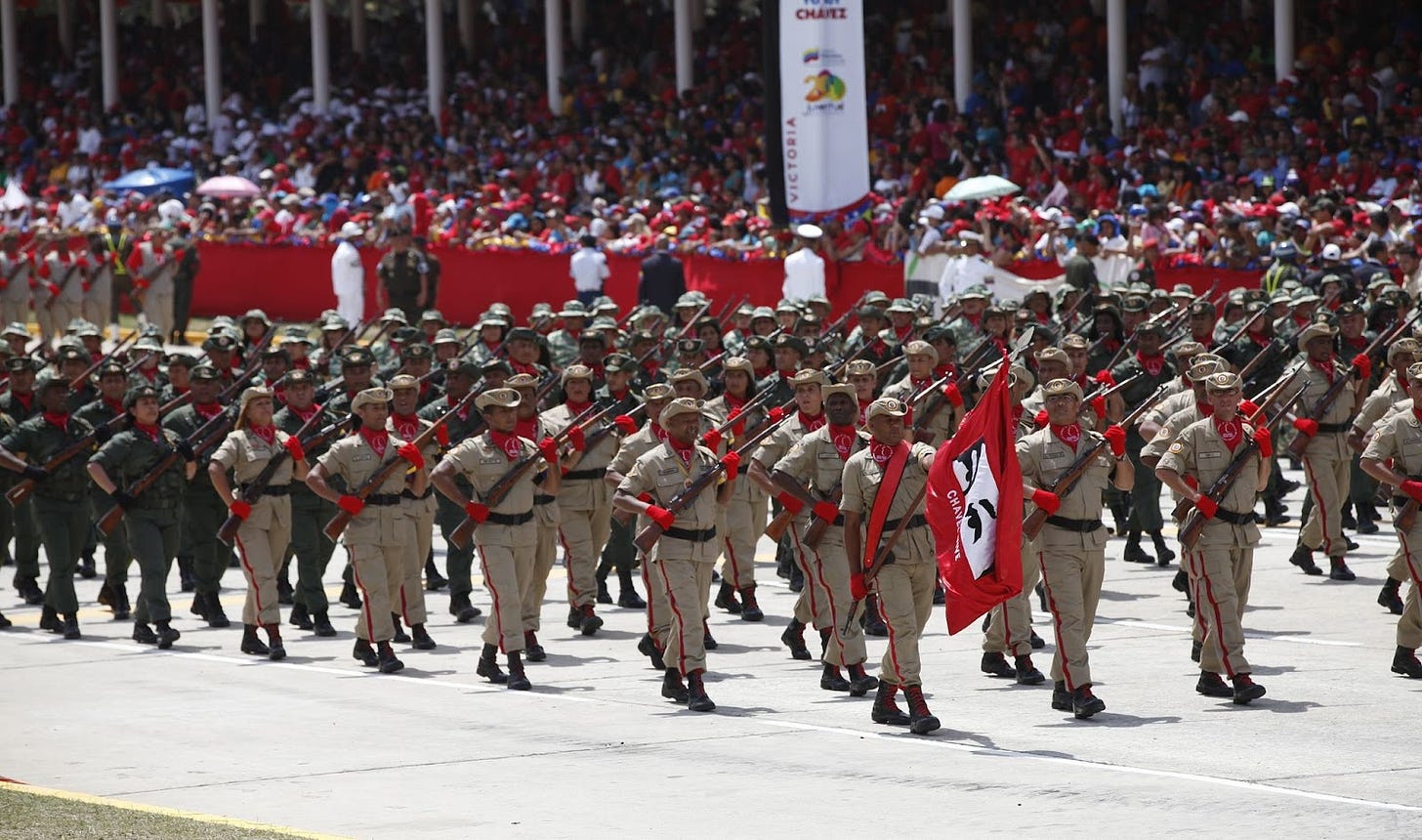Venezuela’s Weak Post-Revolutionary Government
The legitimacy of Venezuela's government is underpinned by charismatic cults of personality that appeal to the poor and the military. Regime change is most likely to come from within the army ranks.

With an estimated population of 25-30 million people, the Bolivarian Republic of Venezuela is the most populous country in the Western Hemisphere with a foreign policy explicitly opposed to the United States, the overwhelmingly dominant military and economic power in the Americas.1 Venezuela also has the world’s largest proven reserves of oil, more than even Saudi Arabia.2 But institutional decay at the state oil company PDVSA has rendered Venezuela unable to extract enough of this natural bounty to shore up the oil-dependent national economy and government budget. Despite plunging into a severe and extended economic crisis that has seen Venezuela become the poorest country in South America and upwards of seven million people flee abroad, including to the U.S., the socialist ruling party led by President Nicolás Maduro has managed to stay in power, surviving a U.S.-backed 2019 attempt to replace him with an opposition candidate that has nonetheless resulted in the U.S.-aligned world no longer recognizing Maduro as the legitimate head of state.3 In 2023, the Venezuelan government laid claim to 70% of the territory of neighboring and much smaller Guyana.

